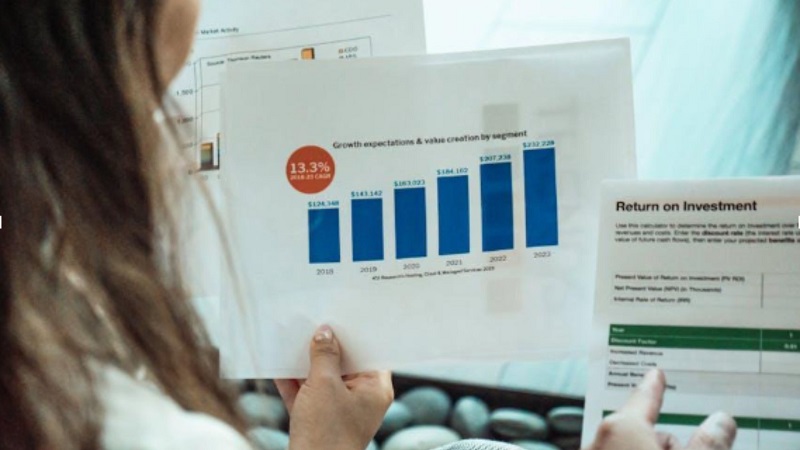1 | The Numbers Behind the Buzz
Britain remains a nation of side‑hustlers‑turned‑founders. In the tax year ending spring 2024 just under 891 thousand new companies were registered—an 11 percent jump on the previous year and the second‑highest total ever recorded. Early data for the 2024–25 window suggests we will clear the 900 thousand mark for the first time. On the flip side, corporate failure never sleeps: roughly 24 thousand formal insolvencies were recorded in 2024, alongside a far larger pool of voluntary dissolutions by directors who closed dormant microsites or mothballed pandemic passion projects. Taken together, survival odds remain remarkably similar to a decade ago: about four in ten start‑ups fail within three years, six in ten are still trading, and a slender elite—fewer than one in twenty—crack meaningful scale.
2 | Bubble or Value?
Are these companies puffing air into a bubble? Yes and no. Sectors such as quick‑commerce grocery and consumer crypto have already deflated, but deep‑tech clusters in Cambridge (quantum computing), Manchester (advanced materials), and Bristol (green aviation) are producing genuine intellectual property, export revenue and high‑value jobs. Across the board, venture capital deal volume is down 18 percent from its 2021 peak, yet average Series A valuations have held steady—an indication that money is concentrating into fewer, stronger hands. In other words: the froth has thinned, the beer underneath tastes stronger.
3 | Funding in 2025 vs 2015
Ten years ago a deck, a hoodie and a “we’re the Uber of X” sound‑bite could raise half a million. Today investors ask tougher questions about routes to profitability, unit economics and regulatory risk. That said, British founders benefit from incentives unknown in 2015:
- SEIS 2.0: the Seed Enterprise Investment Scheme now offers 80 percent income‑tax relief on the first £250 k of individual investment, expanding the angel pool.
- Future Growth Loans: state‑backed debt lines at Bank of England base rate plus one percent for up to seven years.
- Regional funds: devolved administrations in Scotland, Wales and Northern Ireland run £50 k–£5 million co‑investment pots aimed at post‑industrial towns, often matching private money pound‑for‑pound.
Equity terms are more disciplined, but democratic capital is broader. The hurdle has shifted from getting money to deserving it.
4 | Finding a Home
London’s rent remains brutal—yet options have multiplied. Flexible hubs such as Huckletree, Plexal and Cardiff‑based Tramshed Tech offer all‑inclusive desks from £200 a month. Local councils eager to retain graduates repurpose disused libraries and police stations into £1‑a‑year enterprise centres, provided you create at least two jobs within 18 months. Compared with 2015, a founder can now tour half a dozen viable workspaces in any region without touching Zone 1 of the Tube map.
5 | A Six‑Step Launch Roadmap
- Validate the pain: Talk to 25 potential customers before writing a single line of code. Your first “product” might be a phone call and a spreadsheet.
- Pick the right vehicle: For most, a private limited company (Ltd) gives credibility and access to SEIS. Incorporation costs £12 online and takes less than 24 hours.
- Open the talent tap early: Post a part‑time advisory position on a university job board or approach hackathon winners. When you’re ready for payroll, attach a concise letter template UK style offer that spells out equity, cliff and vesting in plain English—transparency beats puff every time.
- Prototype fast: No‑code tools can still take you to user‑number one‑hundred; resist the siren call of “enterprise‑grade” until revenue beckons.
- Apply for grants: Innovate UK Smart Grants, regional growth vouchers, and defence‑tech challenges can bankroll R&D without dilution.
- Book investor exposure: Local angel networks meet monthly in most cities; founders who practise a three‑minute pitch and three‑page financial snapshot tend to secure second meetings.
6 | Common Pitfalls in 2025
- Pointless Web3 pivots: Unless tokenisation genuinely solves a user problem, investors will smell a fad.
- Over‑optimistic burn rates: Spreading seed cash across influencer campaigns instead of real traction invites a down‑round.
- Hidden Brexit costs: Duties on hardware imports and data‑adequacy paperwork can chew 5‑10 percent off margins if ignored.
- Culture drift: Remote‑first models save rent but risk misalignment; schedule quarterly in‑person sprints or pay the price in churn.
7 | Talent and Turnover
Demand for senior developers, data scientists and growth marketers still outstrips supply. Median salaries:
- Senior software engineer: £80 k in London, £68 k in regional hubs.
- Lead machine‑learning engineer: £95 k plus equity.
- Head of growth: £75 k base, commission structures widely varied.
Turnover hovers around 18 months for high‑demand roles. Retain people through clear progression, founder access and a stake in upside—share‑option schemes remain the cheapest loyalty device on the shelf.
8 | Ten‑Year Comparison at a Glance
| Metric | 2015 | 2025 | Commentary |
| New company incorporations | ~610 k | ~900 k | Record creation despite economic headwinds |
| VC deployed capital | £6.4 bn | £14.2 bn | Deal count down, ticket size up |
| Average seed round | £550 k | £1.1 m | Doubled, but maturity expectation higher |
| Co‑working desks outside London | 7 k | 42 k | Regional ecosystems thriving |
| Time to open a business account | 10 days | <48 hours | Fintech challengers sped up KYC |
9 | Bubble‑Proofing Your Own Venture
- Solve a dull headache, not a glamorous migraine—boring B2B niches often hide the deepest margins.
- Run leaner than you think—treat every monthly spend like stage gear chargeable per gig.
- Track the macro—rate rises, corporation‑tax bands and export‑credit changes can force pivots quicker than any competitor.
- Measure true impact—revenue per employee, repeat‑customer rate and gross margin tell a stronger story than vanity downloads.
Conclusion
The UK start‑up arena in 2025 is neither a doomed bubble nor a guaranteed goldmine; it is a complex festival of talent, capital and timing. Entry is cheaper than ever—twelve quid buys you a Companies House number—but staying on the bill demands sharper discipline, clearer purpose and a founder mindset comfortable with late‑night set‑list changes. Nail those basics and Britain still offers one of the most supportive ecosystems on the planet for turning caffeine‑fuelled sketches into sustainable value. That’s not hype; it’s the quiet, compounding reality behind the headlines.



















Leave a Reply